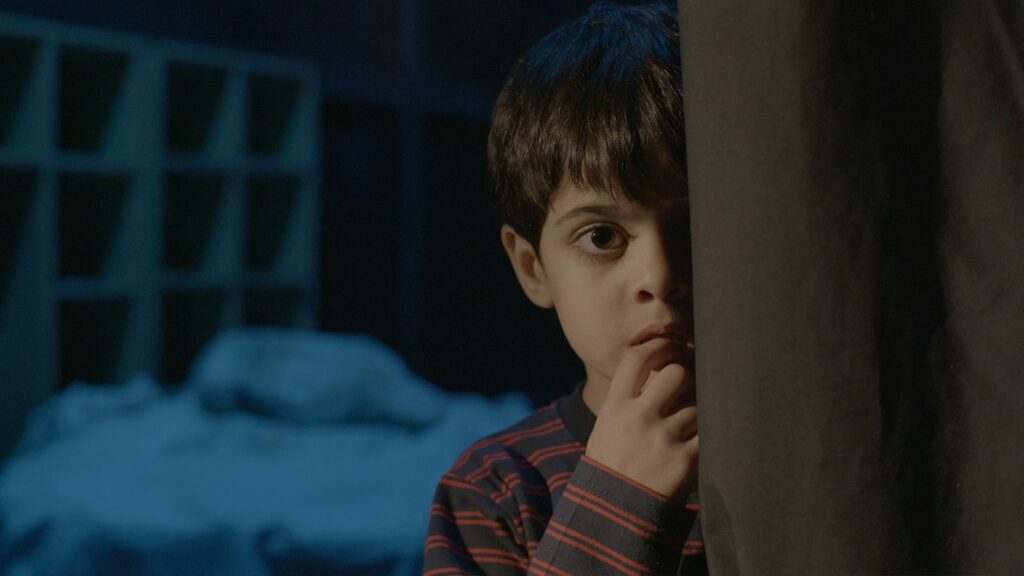Vancouver Foreign Film Society
ANIMAL Reviewed by Lisa Naiberg

Animal
Awards
Locarno International Film Festival
Dimitra Vlagopoulou
Best Film
Styled as a slice-of-life portrait of Kalia, a dancer and the leader of an entertainment troupe of foreign workers, this understated depiction of two widely divergent social classes makes quiet, disquieting observations.
Shy, new Polish recruit Eva learns to copy her mentor’s continual forced smile and disco-themed gyrations, to please the crowds of tourists at Greek beach resorts and sleazy night clubs. Yet she cannot fail to notice Kalia’s melancholia, disillusionment and self-abandon. In fact, all of the troupe members seem somehow fragile and adrift, as they strive both to forge connections with each other and to seek diversion from the reality of their tenuous situation and uncertain futures.
This is a touching study of the search for acknowledgement and purpose, and of the dichotomy between one’s inner and projected selves. In attempting to ingratiate herself to the holidaymakers, Kalia suffers a physical injury − which she largely ignores, much as she seems to dismiss numerous other indignities. Meanwhile, young Eva works to assume a marketable identity, and contemplates not returning home. Even the tourists’ pursuit of a temporary reprieve from their secure but banal existence − exemplified by a one-night stand and by off-key stabs at self-expression in a karaoke bar − testifies to unfulfilled longing.
With its elements of pathos and disaffection, Sofia Exarchou’s film undeniably exposes the Western world’s decline and the wretched inequities of free-world capitalism that devours those labouring in its grip. Their struggles are driven less by ambition than by a desperate yearning for recognition and a quest for their very survival.
NUMB Reviewed by Lisa Naiberg

Numb
Awards
Rotterdam International Film Festival
Tiger Award
Fribourg International Film Festival
2023 Nominee Grand Prix
International Competition
Amir Toodehroosta
This second feature film by Amir Toodehroosta is a remarkable feat, considering the awards it garnered and given that Numb relies largely upon child actors.
Their keen, innocent curiosity contrasts sharply with the adult world of state-sponsored religious propaganda, of social coercion and ugly family secrets. A kindergarten girl is admonished, “If you push back your [head]scarf, [the event coordinator] will take you offstage.
…….”Wide-eyed, acutely sensitive Roham is smitten by his six-year-old classmate Rana. He also has to contend with malevolent playmate Azad, the class bully, who resents any attention paid to others and envisions himself as a scheming spider. Presuming that Roham must feel supplanted by his infant sister, Azad counsels him to pitch her from “the spitting place,” the playground’s highest platform.
.
Images of a tree with multi-coloured streamers dancing in the wind and of vibrantly hued origami birds suggest the exuberance and freedom of childhood. Yet, when queried about their ambitions, the youngsters’ replies – an astronaut, a researcher, a trash collector, a pilot – not only reveal a sense of wonder at the world, but hint at a subconscious wish to repair or to transcend it. Symbolically, a few students are glimpsed, at intervals, sporting a half-face mask; they’ve found themselves cast as involuntary observers and witnesses of a bewildering drama. These masks equally may represent a stifling of self-expression or a concealment of various scars.
Troubled by the bruises on her arm that Rana does her best to hide − and by her sudden, days-long absence from school − Roham later becomes an accidental witness to her molestation by her stepfather. When, in his self-appointed role as her protector, the boy acts upon this knowledge, his daring is met with outrage.
